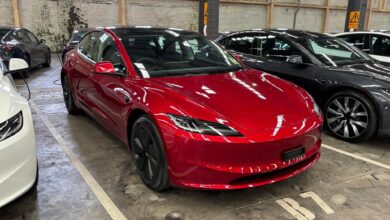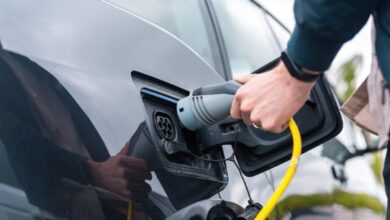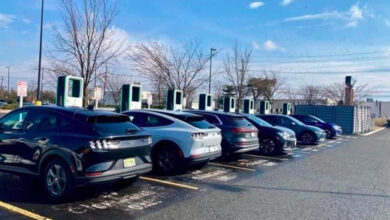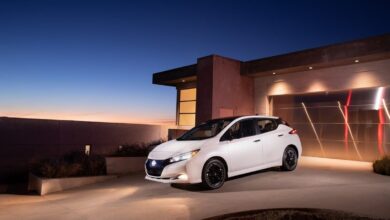Interest in electric vehicles in Canada drops for second year: survey

Article content
Interest in electric vehicles (EVs) in Canada is waning, despite manufacturers introducing new models and price segments.
According to an annual survey from AutoTrader, Canadians are wary of the limited range of EVs, insufficient charging infrastructure, higher costs and concerns about performance in cold weather.
Article content
It’s the second year in a row that interest has declined. According to AutoTrader, at least 68 per cent of Canadians were interested in buying an electric vehicle in 2022. That number dipped to 56 per cent in 2023, and 46 per cent in 2024.
Article content
“AutoTrader data shows a direct correlation to gas prices and EV interest, and since gas prices have normalized from their peak in 2022, EV interest has also dropped,” notes a summary of the survey.
Recommended from Editorial
However, interest in hybrid vehicles, both traditional and the plug-in variety, is on the rise according to the same survey. Of those interested in purchasing an EV, 62 per cent would consider a gas-electric hybrid, up from 52 per cent in 2023, and 60 per cent would consider a plug-in hybrid, up from 54 per cent last year.
Respondents were also asked about the federal government’s Zero Emission Vehicle mandate, which requires all new light-duty vehicles sold in Canada to be zero-emission by 2035.
The majority of respondents believe it is “unlikely” that target will be met, citing inadequate charging infrastructure and possible changes in government that could alter the timeline.
According to information from the federal government, EV chargers are categorized into two main types based on the current they use. Alternating current (AC) chargers are divided into Level 1 and Level 2. Level 1 chargers use a standard electrical outlet and can take up to 50 hours to fully charge an electric vehicle, depending on battery size and charging settings.
Article content
Level 2 chargers require a more robust electrical outlet and significantly reduce charging time, generally taking four to 10 hours. Direct current (DC) chargers are typically found at rapid charging stations in public spaces and along highways and can charge a vehicle to about 80 per cent in 25 to 30 minutes.
While high prices was cited as one of the deterrents to purchasing an EV, AutoTrader found EV prices are declining on both new and used vehicles.
The price of new EVs dropped 17.6 per cent year over year, while used EVs fell 11.4 per cent over the same period.
“EV and hybrid inventory has surged by 145 per cent, with new vehicle growth countrywide experiencing a staggering 522 per cent increase, and used EV/hybrid inventory is up 43.5 per cent,” the survey notes.
A 2023 Ipsos Canada survey commissioned by BrokerLink, a subsidiary of insurance brokerage Intact Financial Corporation, found that 71 per cent Canadians who own gas-powered vehicles are reluctant to give them up.
However, the sample of 2,000 Canadians also found that 59 per cent were excited about the prospect of driving an EV in the future, and the same percentage would consider an EV as their next vehicle purchase.
Our website is the place for the latest breaking news, exclusive scoops, longreads and provocative commentary. Please bookmark nationalpost.com and sign up for our daily newsletter, Posted, here.
Share this article in your social network




